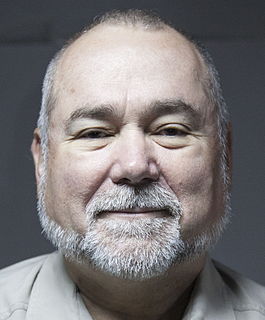A Quote by Richard Dawkins
If we want to postulate a deity capable of engineering all the organized complexity in the world, either instantaneously or by guiding evolution, that deity must have been vastly complex in the first place. The creationist, whether a naive Bible-thumper or an educated bishop, simply postulates an already existing being of prodigious intelligence and complexity. If we are going to allow ourselves the luxury of postulating organized complexity without offering an explanation, we might as well make a job of it and simply postulate the existence of life as we know it!
Quote Topics
Allow
Been
Being
Bible
Bishop
Capable
Complex
Complexity
Creationist
Deity
Educated
Either
Engineering
Evolution
Existence
Existence Of Life
Existing
Explanation
First
First Place
Going
Guiding
Intelligence
Job
Know
Life
Luxury
Make
Might
Must
Naive
Offering
Organized
Ourselves
Place
Prodigious
Simply
Vastly
Want
Well
Whether
Without
World
Related Quotes
On one planet [earth], and possibly only one planet in the entire universe, molecules that would normally make nothing more complicated than a chunk of rock, gather themselves together into chunks of rock-sized matter of such staggering complexity that they are capable of running, jumping, swimming, flying, seeing, hearing, capturing and eating other such animated chunks of complexity; capable in some cases of thinking and feeling, and falling in love with yet other chunks of complex matter.
































